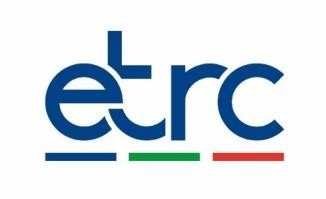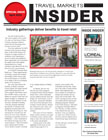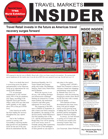British lawmakers approved Prime Minister Boris Johnson’s post Brexit deal with the European Union on Wednesday. Parliament’s lower house voted 521 to 73 in favor of the agreement, sending it to the Upper House, where it is expected to be approved.
On December 24, the European Union and the United Kingdom had reached an agreement in principle on the EU-UK Trade and Cooperation Agreement.
 According to the European Travel Retail Confederation (ETRC), the agreement defined the relationship between the two entities at the end of the Brexit transition period based on a level playing field and respect for fundamental rights. The ETRC has urged travel retail businesses to prepare for a new trading regime between the UK and EU countries from January 1, and to clearly communicate updated allowances to travelers.
According to the European Travel Retail Confederation (ETRC), the agreement defined the relationship between the two entities at the end of the Brexit transition period based on a level playing field and respect for fundamental rights. The ETRC has urged travel retail businesses to prepare for a new trading regime between the UK and EU countries from January 1, and to clearly communicate updated allowances to travelers.
The trade agreement covers trade in goods and in services, digital trade, intellectual property, public procurement, aviation and road transport, energy, fisheries, social security coordination, law enforcement and judicial cooperation in criminal matters, thematic cooperation and participation in Union programs.
“While both parties described the deal as an ambitious one which notably includes zero tariffs and zero quotas on all goods, this will create new barriers to trade in goods and services,” noted ETRC in a note to its members earlier this week.
As it pertains to duty free, ETRC writes: “As of 1 January 2021, ‘persons carrying goods in their luggage or otherwise with them are entitled to duty free allowances (meaning goods exempt from VAT and customs duties, and where applicable excise duty).’”
This covers travelers departing England, Scotland and Wales for EU countries; but does not apply to travelers between Northern Ireland and the EU. Travelers from the EU to the UK can purchase duty free goods, including an increased liquor allowance.
Other details in the ETRC memorandum include:
Due to the late adoption of the agreement between the UK and the European Commission acting as the negotiator, the Commission recommended that the Agreement is to be applied on a provisional basis, for a limited period of time until February 28 2021.
Duty and Tax Free allowances
As a retailer’s association ETRC says that it encourages responsible retailing including clear communication to passengers of their personal allowances in their country of destination via POS communication. Allowances should be communicated accordingly, e.g. posters in the shop and staff training so that staff can inform passengers at the till and potentially remind them of consequences for exceeding allowances.
Duty Free allowances when entering the European Union:
- Alcohol: a. 4 litres of still wine; and b. 16 litres of beer; and c. a total of 1 litre of spirits over 22 % vol. OR 1 litre of undenatured alcohol (ethyl alcohol) of 80% vol. (or over) OR 2 litres of fortified or sparkling wine.
- Tobacco: 200 cigarettes OR 100 cigarillos OR 50 cigars OR 250 g tobacco;
- Other goods up to a value of EUR 300 per traveler or EUR 430 for travelers by air and sea.
- There are no allowances for tobacco or alcohol for travelers under 17.
Duty Free allowances when entering Great Britain (England, Scotland and Wales):
- Alcohol: a. 18 litres of still wine; and b. 42 litres of beer; and c. a total of 4 litres of spirits and other liquors over 22% alcohol OR 9 litres of fortified wine (for example port, sherry), sparkling wine and alcoholic drinks up to 22% alcohol
- Tobacco: 200 cigarettes OR 100 cigarillos OR 50 cigars OR 250 g tobacco OR 200 sticks of tobacco for heating.
- Other goods worth up to £390 (or up to £270 when arriving by private plane or boat). If a single item’s worth more than the allowance duty or tax must be paid on its full value, not just the value above the allowance.
As of this time, effective January 1, 2021 tax free shopping will not be available for air passengers leaving the UK, despite an intense campaign to repeal the new rules.









